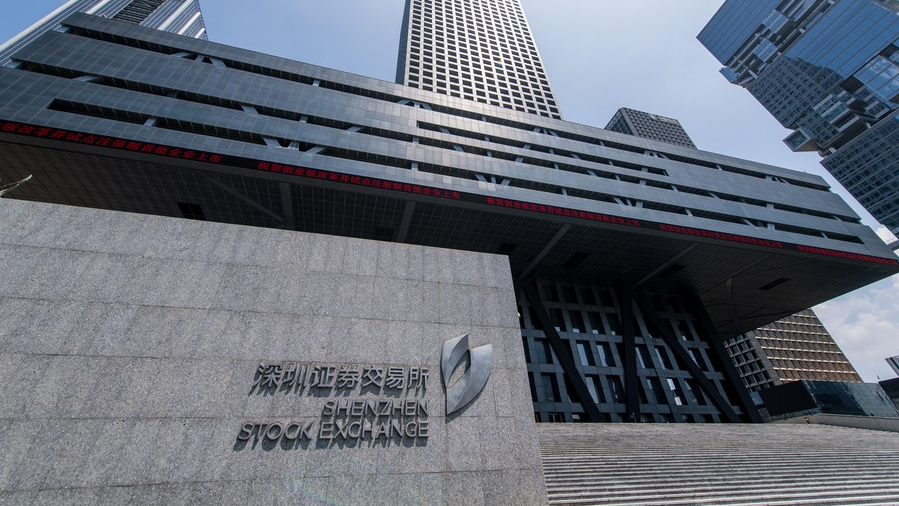
A view of the Lujiazui Financial and Trade Zone of Pudong in Shanghai, East China, July 23, 2019. /CFP
A view of the Lujiazui Financial and Trade Zone of Pudong in Shanghai, East China, July 23, 2019. /CFP
Editor's note: Chen Jiahe is the chief investment officer at Novem Arcae Technologies. The article reflects the author's views and not necessarily those of CGTN.
China's economy ranked second worldwide for the past 12 years, while the country is accelerating the opening-up of its financial markets, including the foreign exchange and stock markets, as well as the fixed income market, to global investors.
In recent decades, China's pace to open up its financial market has been slower than its real economy. The complete opening-up of the financial market when an economy is small and weak could lead to disaster, so caution is crucial.
In the 1997 Asian Financial Crisis, countries such as Thailand, Malaysia and South Korea were hit hard, since their financial markets were widely opened with imbalanced economies that were relatively small. The Asian Financial Crisis caused economic damage that was felt in the region for many years in the aftermath.
Nonetheless, China's per capita GDP has passed the threshold of $12,000 and is estimated to reach $13,000 in 2022, together with its large population of 1.4 billion, China's financial market is resilient enough to withstand the greater risks. In the past decade, many policies were set up by China's authorities to open up the financial market, step by step.
The Shanghai-Hong Kong Stock Connect was launched in 2014 to forge deeper investment ties between Chinese mainland and Hong Kong region. Global investors can more easily invest in the Shanghai and Shenzhen stock markets, which has thousands of publicly-listed companies, without requiring to conduct their financial transactions via the currency exchange. Mainland stock investors can more easily buy and sell stocks in the Hong Kong market as well. Years later, some open market trading funds, such as exchange traded funds, were added to the program.

The Shenzhen Stock Exchange in Shenzhen, south China's Guangdong Province, August 24, 2020. /Xinhua
The Shenzhen Stock Exchange in Shenzhen, south China's Guangdong Province, August 24, 2020. /Xinhua
The fixed income market has been opened up to global investors. In 2022, a latest report by the State Administration of Foreign Exchange shows that the size of China's fixed income market is $2.1 trillion, but only three percent is held by global investors. "This means there are still room for China's fixed income market to accept global investment," the report said.
In the foreign exchange market, a series of opening-up policies were set. The latest important change was made in 2015, where a foreign exchange rate reform added more market-oriented elements to China's foreign exchange rate. The daily fluctuation of the Chinese yuan exchange rate has become a must-read figure for currency traders worldwide.
The opening-up of China's financial market can offer multiple opportunities for both Chinese and global investors. The Chinese economy plays a bigger role in the global economic system, especially when inflationary pressures are slowing down the growth rate of the global economy. The strong production and export capability of the Chinese economy could support greater prosperity worldwide.
The opening-up of China's financial market can bring more capital from the world to China, while more capital means more financial liquidity, business connections and technological exchanges to boost development.
Investment in China's financial market, based on a large economy growing at a stable speed, can benefit global investors. Charlie Munger, the legendary U.S. value investor, said that his investments in Chinese companies have produced substantial returns. China's new energy market has already delivered massive returns on profit for him.
The opening-up of China's financial market will offer domestic investors more chances to invest globally, creating more capital and technology to invest into China's businesses. Accordingly, China's financial market is opening wider to the world, which could usher in higher financial returns. The seasoned global investors should not overlook this opportunity.
(If you want to contribute and have specific expertise, please contact us at opinions@cgtn.com. Follow @thouse_opinions on Twitter to discover the latest commentaries in the CGTN Opinion Section.)